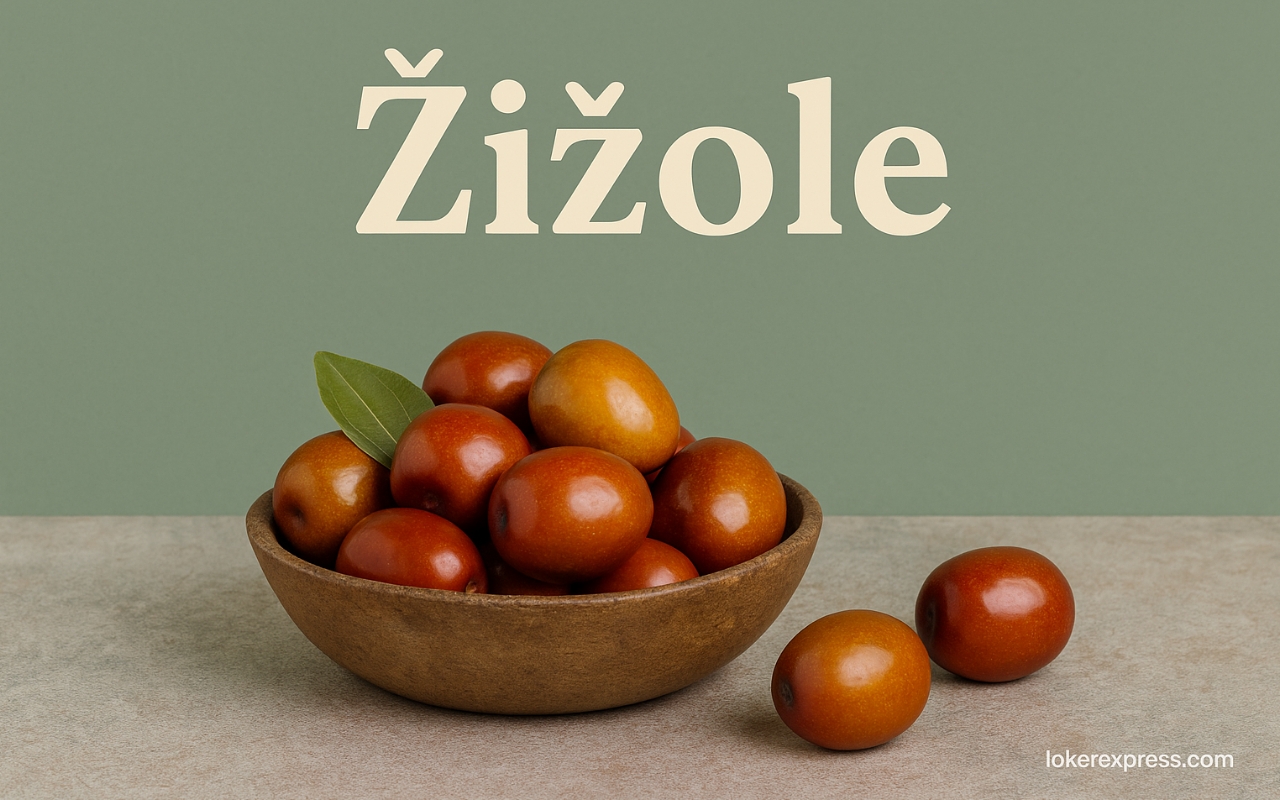Introduction: What Are Žižole?
Žižole, known to the scientific community as Ziziphus jujuba or Ziziphus mauritiana, are small fruits with an ancient legacy and a growing modern appeal. These unique fruits are often referred to as jujube, Chinese date, or Indian jujube in English. Popular in many parts of Asia, the Middle East, and the Mediterranean, žižole are cherished for their sweet taste and impressive range of health benefits. Though they may look modest, their impact on nutrition, medicine, and culture is profound.
Botanical Background: Understanding Žižole Varieties
The genus Ziziphus includes numerous species, but two are primarily associated with what we call žižole: Ziziphus jujuba (Chinese jujube) and Ziziphus mauritiana (Indian jujube). Both belong to the Rhamnaceae family and bear fruit that can be consumed fresh, dried, or processed.
Ziziphus jujuba trees thrive in temperate climates. The fruit starts off green, matures into a reddish-brown hue, and has a chewy, date-like texture when dried. On the other hand, Ziziphus mauritiana prefers tropical or subtropical conditions. Its fruits are typically smaller, tangier, and have a crisp, apple-like texture when eaten fresh. Despite their differences, both species share a high nutritional profile and medicinal versatility.
Nutritional Profile: A Powerhouse of Health
Žižole are packed with nutrients, making them an excellent natural supplement to modern diets. A 100g serving of fresh žižole provides approximately 79 calories, which mainly come from natural sugars and complex carbohydrates. Yet their real strength lies in their micronutrient and phytochemical content.
They are exceptionally rich in:
- Vitamin C: Boosts immune function and acts as a strong antioxidant.
- Potassium: Supports cardiovascular health and muscle function.
- Iron and Phosphorus: Vital for blood health and bone integrity.
- Flavonoids and Saponins: Known for anti-inflammatory and calming properties.
- Dietary Fiber: Promotes digestive health and helps regulate blood sugar.
These attributes make žižole more than just a tasty fruit; they are a comprehensive health booster.
Health Benefits: Traditional Wisdom Meets Modern Science
For thousands of years, žižole have been used in Traditional Chinese Medicine (TCM), Ayurveda, and folk remedies across the globe. Today, modern science is beginning to validate these age-old practices.
- Promotes Better Sleep: Due to its natural sedative compounds, žižole is often used to treat insomnia and anxiety.
- Supports Digestive Health: Fiber content aids in bowel regularity and supports gut bacteria.
- Boosts Immunity: With abundant vitamin C and antioxidants, it strengthens the body’s defense against infections.
- Reduces Inflammation: Its anti-inflammatory properties are useful in managing chronic diseases like arthritis.
- Regulates Blood Sugar: Early research indicates that žižole may improve insulin sensitivity and reduce blood glucose levels.
These benefits make it a practical choice for those looking to incorporate more natural and functional foods into their lifestyle.
Culinary Uses: From Snacks to Gourmet Delights
Žižole are highly versatile in the kitchen and can be used in various ways:
- Fresh: Enjoy them like an apple, crisp and juicy.
- Dried: Common in Asian cultures, dried žižole are chewy and sweet, much like dates.
- In Teas: A popular bedtime drink in East Asia, jujube tea is both calming and flavorful.
- Cooked Dishes: Added to soups, stews, and even desserts.
- Jams and Preserves: Their natural sweetness makes them perfect for making healthy spreads.
Their flavor adapts well to both savory and sweet dishes, making them a valuable ingredient in any culinary tradition.
Cultivation and Harvesting: Growing Žižole
Growing žižole is relatively straightforward, which adds to their appeal for farmers and home gardeners alike.
- Climate Requirements: Žižole trees are hardy and drought-resistant. Z. jujuba prefers temperate zones, while Z. mauritiana thrives in tropical climates.
- Soil: Well-drained, loamy soil with a neutral to slightly alkaline pH is ideal.
- Propagation: Grown from seeds or cuttings. Grafting is also commonly used for maintaining fruit quality.
- Harvesting: Fruits are ready to harvest when they reach full size and color. They can be picked green for crispness or allowed to ripen fully for sweetness.
Thanks to their resilience and minimal pest problems, žižole are a sustainable fruit crop for various climates.
Traditional and Modern Medicinal Applications
Historically, žižole have been used to treat numerous ailments:
- Stress and Anxiety: The fruit is used in tonics to calm nerves.
- Liver Protection: Some studies suggest it helps in detoxification and liver regeneration.
- Skin Conditions: Used topically and internally to treat dry skin and eczema.
- Wound Healing: Known to speed up recovery due to its anti-inflammatory and antioxidant properties.
Today, extracts from žižole are found in supplements, skincare products, and herbal medicines around the world.
Potential Side Effects and Precautions
While žižole are generally safe, a few considerations are worth noting:
- Medication Interactions: People on sedatives or diabetes medication should consult a doctor.
- Allergies: Rare, but possible. Those with fruit allergies should try small amounts first.
- Pregnancy: Although traditionally used in prenatal care, it’s best to consult a physician before regular use during pregnancy.
As with any functional food, moderation and personalized guidance are key.
Economic and Cultural Significance
Žižole are more than a fruit; they are part of various cultural rituals and agricultural economies:
- Cultural Symbolism: In Chinese culture, jujube symbolizes fertility and prosperity and is often used in weddings.
- Economic Value: China, India, and several Mediterranean countries benefit from the local and international trade of žižole products.
- Sustainability: Given their drought resistance and minimal pesticide requirement, žižole farming is considered environmentally friendly.
Their cultural and economic relevance only adds to their value in the global market.
Read More: www that-bites .org foodies corner – The Ultimate Destination for Foodies
Conclusion: Embracing the Benefits of Žižole
Incorporating žižole into your life means embracing a fruit that bridges the past and future. With a unique blend of taste, nutrition, and medicinal properties, žižole stand out as one of nature’s hidden gems. Whether you enjoy them fresh from a tree, in a soothing tea, or as part of a health supplement, the possibilities are abundant. For those seeking a natural way to enrich their diet and health, žižole offer a delicious and functional solution.
From ancient healing traditions to modern kitchens, žižole have proven their worth. Now it’s time for the world to take notice.

